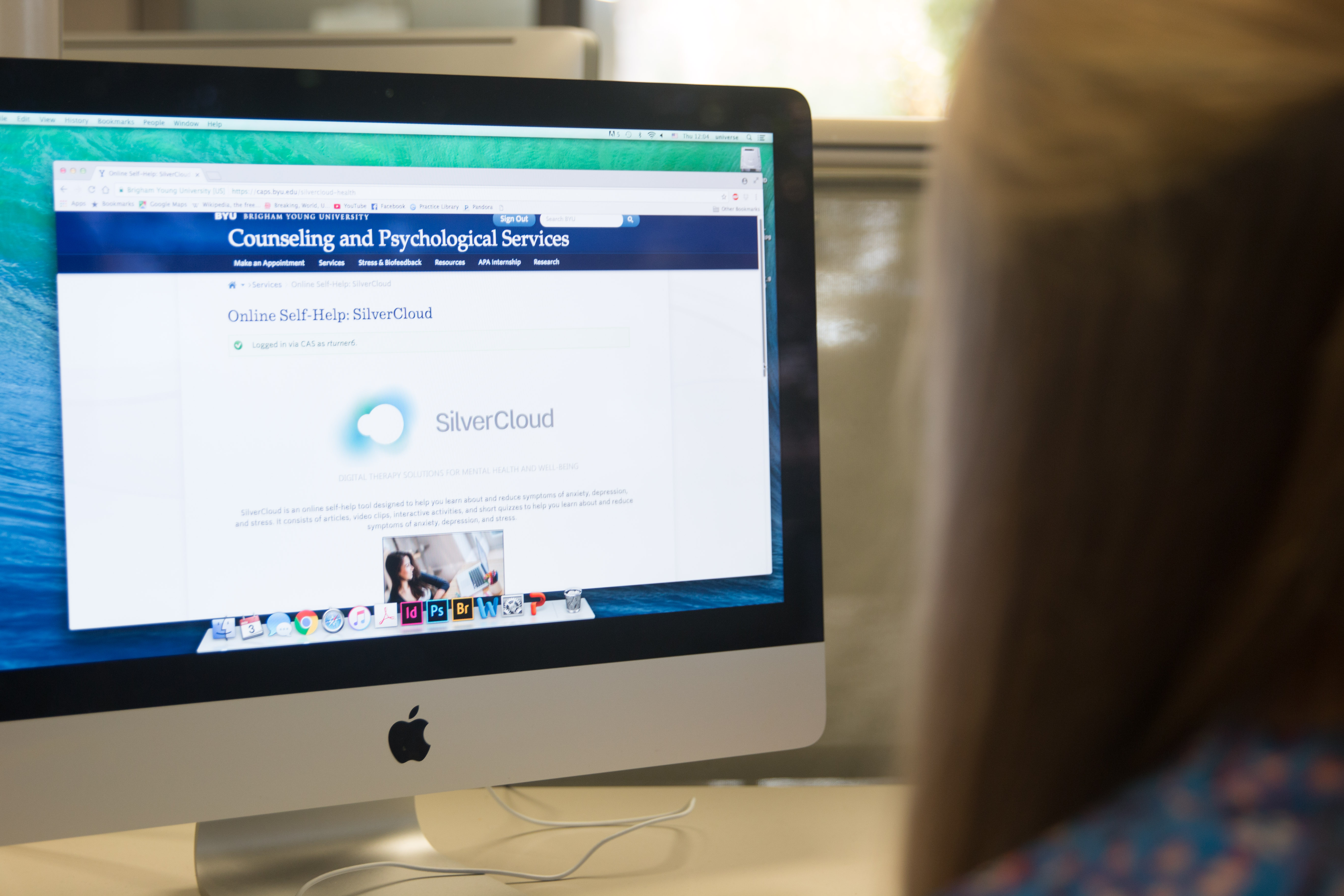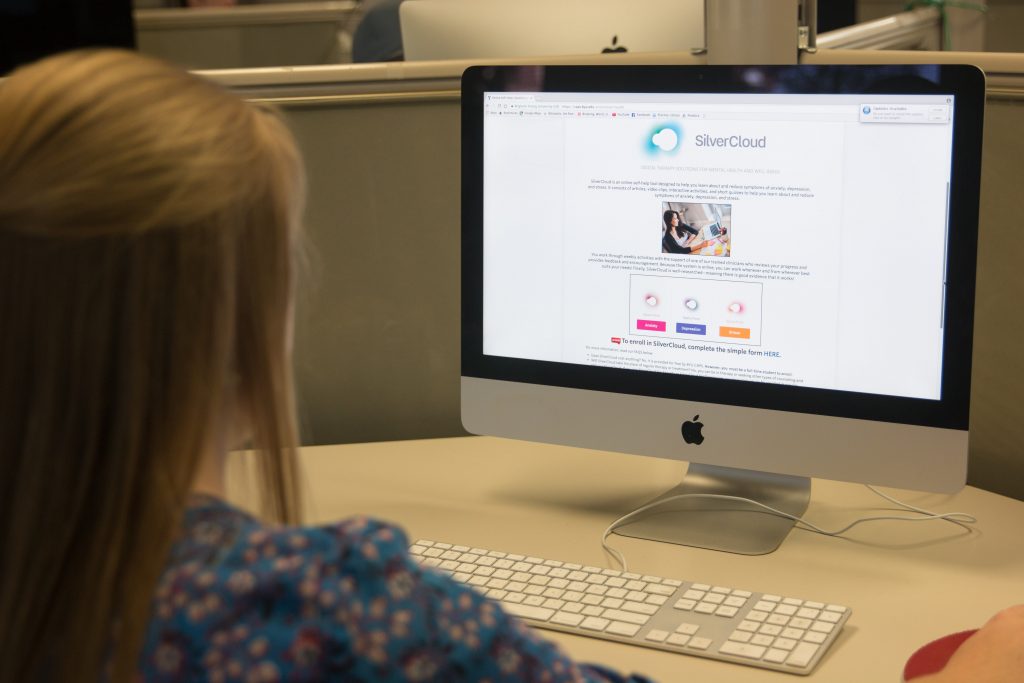
BYU Counseling and Psychology Services is offering an online tool for students suffering from stress, mild anxiety or depression.
SilverCloud is an online therapy and counseling program and is free to full-time students.
Tyler Pedersen, assistant director of the Counseling and Career Center, said BYU has spent the past five years looking for a tool to supplement therapy and settled a year ago on SilverCloud. The counseling department has seen a lot of growth, he said, and online counseling has created ways to help manage that growth.
The school first used SilverCloud as a supplement to students already receiving in-person counseling, but opened it up to all full-time students in January. A total of 1,000 students have signed up since BYU started using the program last November, Pedersen said.
He said SilverCloud is “most applicable” in helping students manage stress.
SilverCloud is mainly a self-help program, but a BYU therapist checks in with users about once a week. The program runs for eight weeks and provides tools, activities and techniques to help users manage any combination of problems with stress, anxiety or depression.
Online counseling and therapy is a relatively new practice and many psychologists are still determining its effectiveness.
“Online tools allow for access to empirically supported treatment and information that can be accessed anytime and anywhere,” said David Erekson, assistant clinical professor in the Counseling and Psychological Services, or CAPS. “This accessibility and flexibility can be an incredibly useful tool for those who engage with it.”
User engagement is the main problem with online therapy. Erekson said accessibility can lead to students thinking it’s always available and they can procrastinate, which can inhibit progress.
Pedersen also said it’s crucial for users to follow through on SilverCloud if they want to see the full benefits.
“The program is designed to build on itself,” he said. “We definitely want students to be aware of it, but also that there is a commitment to it.”

SilverCloud users typically spend 30 to 45 minutes a week on the program. After the eight weeks are finished, students may go back and continue to use SilverCloud without the weekly check-ins from a therapist.
BYU senior Lauren Miller is studying family life and plans to become a marriage and family therapist.
“Because of how a majority of things are online these days, most people feel more comfortable seeking the help of a counselor through the internet rather than going to an office,” Miller said. “Due to the accessibility, I believe the stigmas will lessen and more people will reach out to receive help from licensed professionals. ”
However, face-to-face interaction is what she looks forward to most in her profession.
“I hate the idea that I would not have as many opportunities to talk to my clients and interact with them,” Miller said. “I think that is the most appealing part of my career and what I really look forward to.”
When students first sign up for SilverCloud, they take a quiz to determine where they need the most help. If they score beyond a certain level, they are encouraged to get in-person therapy. BYU Counseling and Psychological Services offers free, confidential counseling for full-time students.
While Erekson said online counseling can be a very effective tool when students are willing to engage with it, he also believes in-person therapy can benefit most people. He said it’s good to check in with a therapist anytime someone feels like emotional difficulties are significantly impairing their ability to function or cope on their own.
Erekson said ultimately if a student is willing to engage with online counseling, it can be a very effective tool in managing stress and mild depression or anxiety.
“Finally, if you are having suicidal thoughts and feel that you aren’t able to keep yourself safe, either walk in to CAPS or call BYU Police,” Erekson said. “We’re here to help.”




